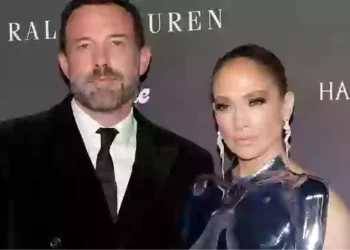Ghana’s creative industry has long been a vibrant tapestry woven from the threads of music, art, literature, and film.
From the soulful melodies of highlife and hiplife to the evocative storytelling of Ghanaian literature, the nation has produced many talents who have shaped local culture and significantly impacted the global stage.
However, a troubling trend has emerged: the lack of respect and recognition accorded to this industry’s creative legends.
Ghanaian songstress Sherifa Gunu has voiced her concerns regarding the treatment of creatives in the country, particularly older artists who have made significant contributions to the nation’s music scene.
She believes these talented individuals often go unrecognised and disrespected despite their substantial input toward Ghana’s creative landscape.
Sherifa Gunu pointed out that while other countries celebrate their cultural icons, Ghana tends to honour its creative legends, often when it is too late.
“Ghana only celebrates you when you die or when foreigners notice you. If I were Nigerian, I’d be bigger by now. We don’t respect our legends until it’s too late.”
Sherifa Gunu
To her, this trend is disappointing and highlights a troubling lack of respect for those who have paved the way for younger artists.
She therefore called for a fundamental shift in how the nation values her artistic contributors, asserting that the current narrative must change to acknowledge the achievements of those who have come before.
To understand the gravity of this issue, one must first acknowledge the monumental contributions of Ghana’s creative legends.

Figures such as E.T. Mensah, often referred to as the “King of Highlife,” revolutionized music in Ghana and beyond, paving the way for future generations of musicians.
Similarly, literary giants like Ama Ata Aidoo and Ayi Kwei Armah have crafted narratives that delve deep into the Ghanaian experience, earning international acclaim.
These individuals have not only contributed to the cultural fabric of Ghana but have also served as ambassadors of Ghanaian identity on the global stage.
Despite their significant contributions, many of these creative legends are often relegated to the background, overshadowed by newer talents and trends.
This neglect is attributed to several factors, including a rapidly changing creative landscape, the rise of digital media, and a societal tendency to prioritize contemporary artists over established ones.
The allure of social media and the quest for viral fame often overshadow the rich histories and narratives that these creative legends embody.
This cultural amnesia not only disrespects the hard work and sacrifices of these pioneers but also robs the younger generation of valuable lessons and inspiration from their stories.
Ghana’s Creative Legends’ Impact on Future Generations

Failing to respect and honor the legends of Ghana’s creative industry has profound implications for future generations.
Young artists and creators feel disconnected from their roots, lacking the guidance and inspiration that comes from understanding the contributions of those who came before them.
By sidelining these icons, the industry risks losing touch with its cultural heritage, which is vital for nurturing creativity and innovation.
A lack of respect for these creative legends leads to a homogenization of artistic expression, where originality is sacrificed for trends that lack depth and cultural significance.
To rectify this oversight, it is essential for stakeholders in Ghana’s creative industry—artists, producers, policymakers, and the media—to actively engage in celebrating and honoring the contributions of legendary figures.

This is achieved through various initiatives, such as dedicated awards, retrospectives, and educational programs that highlight their work and influence. Documentaries and interviews that tell their stories can also serve as powerful tools for preserving their legacies.
Moreover, integrating discussions about these legends into academic curricula helps instill a sense of pride and appreciation in young creatives.
By fostering an environment that respects and acknowledges the past, create a more inclusive and vibrant creative industry that honors its roots while embracing innovation.
The neglect of Ghana’s creative legends is a disservice to the rich cultural heritage they have built and a hindrance to the growth of future generations.
It is imperative that we recognize, celebrate, and respect the contributions of these icons to ensure that their legacies continue to inspire and shape the creative landscape of Ghana.
By doing so, we not only honor their sacrifices and achievements but also enrich our cultural identity, fostering a creative industry that is both dynamic and deeply rooted in its history.
Let us take the necessary steps to ensure that the legends of Ghana’s creative industry are not forgotten, but rather celebrated as the foundational pillars of our artistic expression.
READ ALSO: GBA’s ‘Troubling Inconsistency’ Rebuked





















